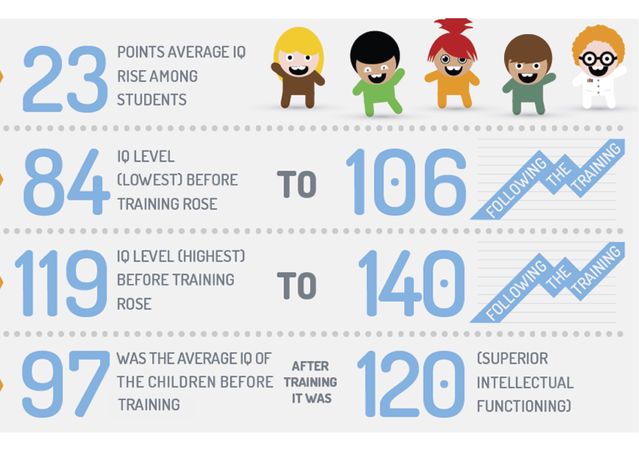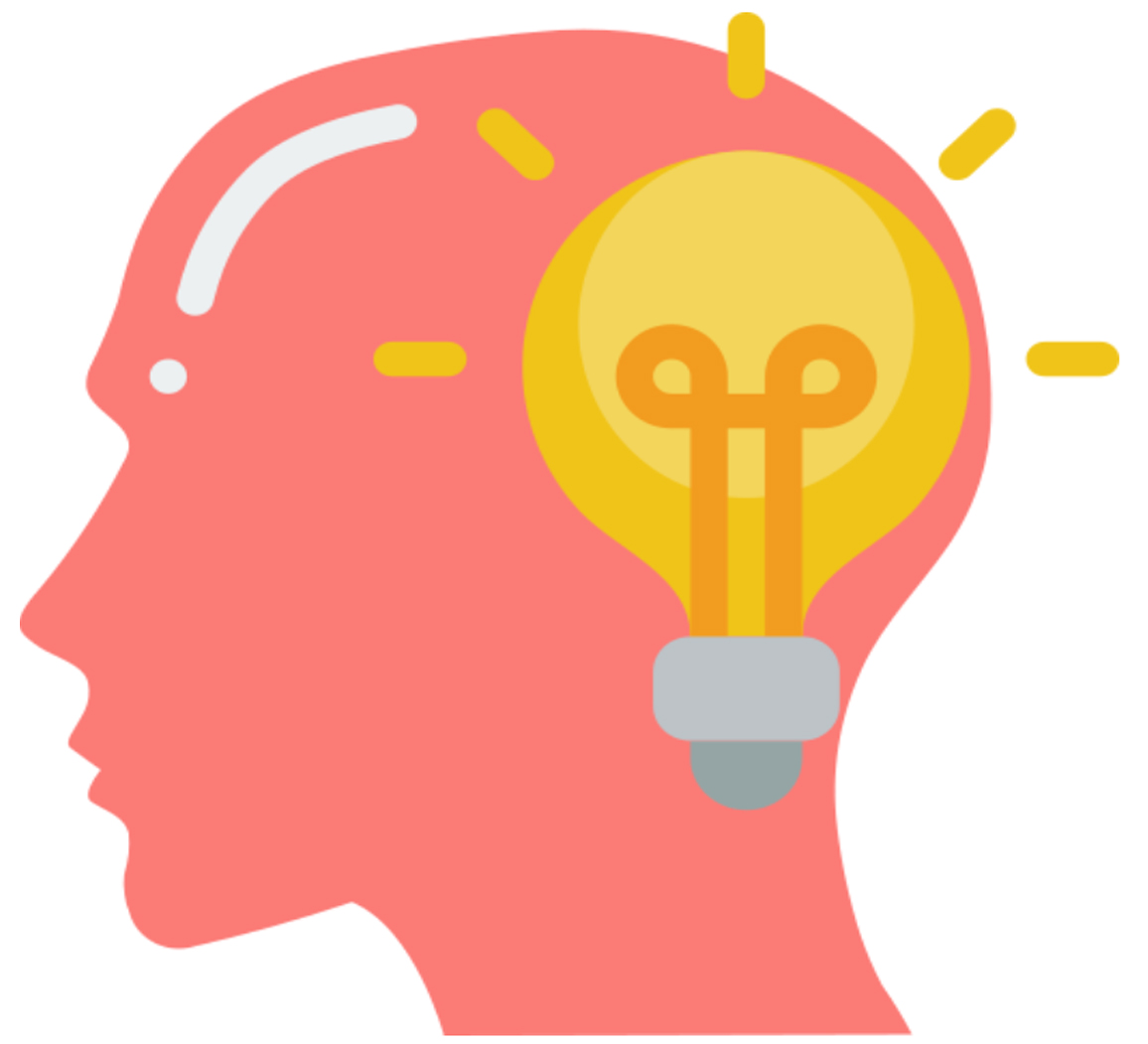The science behind brain training: The science and scientific evidence supporting brain training from RaiseYourIQ

The Science behind SMART Intellectual Skills Training
Dr. Bryan Roche and Dr. Sarah Cassidy have worked as scientists for many years in the
development of the SMART brain training method. The RaiseYourIQ approach to brain health is based on Relational Frame Theory – a modern theory of cognition that our team has helped to develop over the past two decades. Dr. Roche was the co-editor of the two seminal texts on this theory. Dr. Cassidy was the leading researcher behind the first demonstration of IQ gains resulting from relational skills training.
RaiseYourIQ offers the only brain training system in the world that is based on tried and tested
systems of intellectual skills interventions used in the clinical setting (for example the methods of
Applied Behaviour Analysis), and that has been shown in published scientific research to lead to real,
large, and objectively measurable gains in general intelligence (IQ). No other method benefits from
even a single study, showing large and reliable IQ gains as a result of training.
Our SMART system has achieved the holy grail of brain training across several different published
studies. That is, we have achieved what scientists call evidence of “far transfer”. This means that
increased scores on an IQ test have been proven to result from training on skills that are not
directly assessed on the IQ test. In other words, the benefits of our SMART training have been proven
to transfer far into intellectual areas that we do not train directly in our system but which are
assessed in general intelligence tests (e.g., vocabulary, verbal comprehension, analogical reasoning,
numeracy, and so on). This makes SMART training truly unique and revolutionary in its approach to
intellectual skills enhancement.
Some of the other tools that we have made available here to schools or clinics (SMART for Dyslexia,
KidStarter, FAST emotional flexibility training) are also based on Relational Frame Theory concepts,
or on Acceptance and Commitment Therapy (ACT) methods, which are heavily conceptualised in terms of
Relational Frame Theory.
Sample of Scientific Evidence Papers
Direct evidence for the SMART approach
Amd, M., & Roche, B. (2018). Assessing the effects of a
relational training intervention on fluid intelligence among a sample of
socially disadvantaged children in Bangladesh. The Psychological
Record, 68(2), 141–149.

Cassidy, S., Roche, B., Colbert, D., Stewart, I., & Grey, I.
(2016). A relational frame skills training intervention to increase
general intelligence and scholastic aptitude. Learning and Individual
Differences, 47, 222–235. https://doi.org/10.1016/j.lindif.2016.03.001.

Cassidy, S., Roche, B., & Hayes, S. C. (2011). A relational frame
training intervention to raise Intelligence Quotients: A pilot study.
The Psychological Record, 61, 173–198. https://doi.org/10.1007/
BF03395755.

Colbert, D., Tyndall, I., Roche, B., & Cassidy, S. (2018). Can
SMART training really increase Intelligence? A Replication Study.
Journal of Behavioral Education, 27, 509-531.
https://doi.org/10.1007/s10864-018-9302-2

Hayes, J., & Stewart, I. (2016). Comparing the effects of derived
relational training and computer coding on intellectual potential in
school-age children. British Journal of Educational Psychology, 86,
397–411. https://doi.org/10.1111/bjep.12114.

McLoughlin, S., Tyndall, I., & Pereira, A. (2018). A brief
relational operant training program: Analyses of response latencies and
intelligence. European Journal of Behavior Analysis, 19 (2). 228-246.
DOI: 10.1080/15021149.2018.1507087.

Thirus, J., Starbrink, M., & Jansson, B. (2016). Relational frame
theory, mathematical and logical skills: A multiple exemplar training
intervention to enhance intellectual performance. International Journal
of Psychology & Psychological Therapy, 16(2), 141–155.

Presti, G., Torregrosssa, S., Migliore, D., Roche, B., Cumbo, E.
(2018). Relational Training Intervention as add-on therapy to current
specific treatments in patients with mild-to-moderate Alzheimer’s
disease. International Journal of Psychology and Neuoscience, 3, 88-97.

Vizcaíno-Torres, R.M., Ruiz, F., Luciano, C., López-López, J.,
Barbero-Rubio, A., & Gil, E. (2015). The effect of relational
training on intelligence quotient. A case study. Psicothema, 27(2), 120-
127. doi: 10.7334/psicothema2014.149.

Theoretical background to SMART
Andrews, G., & Halford, G. S. (1998). Children’s ability to make
transitive inferences: The importance of premise integration and
structural complexity. Cognitive Development, 13, 479–513. https://doi.
org/10.1016/S0885-2014(98)90004-1.

Barnes-Holmes, D., Finn, M., McEnteggart, C., Barnes-Holmes, Y.
(2017). Derived Stimulus Relations and Their Role in a Behavior-Analytic
Account of Human Language and Cognition. Perspectives on Behavior
Science, 41, 155–173. DOIhttps://doi.org/10.1007/s40614-017-0124-7

Cassidy, S., Roche, B. & O’Hora, D. (2010). Relational Frame
Theory and human intelligence. European Journal of Behavior Analysis,
11, 37-51.

Halford, G., Wilson, W., & Phillips, S. (2010). Relational
knowledge: The foundation of higher cognition. Trends in Cognitive
Sciences, 14(11), 497–505. https://doi.org/10.1016/j.tics.2010.08.005.

Hayes, S. C., Barnes-Holmes, D., & Roche, B. (Eds.) (2001).
Relational frame theory: A post-Skinnerian account of human language and
cognition. New York: Kluwer Academic.

Hayes, J., Stewart, I 7 McElwee, J. (2016). Assessing and Training
Young Children in Same and Different Relations Using the Relational
Evaluation Procedure (REP). The Psychological Record, 66, 547–561.
DOIhttps://doi.org/10.1007/s40732-016-0191-2

Marr, M. (2015). Mathematics as verbal behavior. Behavioural
Processes, 113, 75–80. https://doi.org/10.1016/j.beproc.2015.01.005.

Rehfeldt, R. A & Barnes-Holmes, Y. (2009). Derived Relational
Responding Applications for Learners with Autism and Other Developmental
Disabilities: A Progressive Guide to Change. San Francisco: New
Hartbinger.

Roche, B., Cassidy, S. & Stewart, I. (2013). Nurturing genius:
Realizing a foundational aim of Psychology. In Kashdan, T &
Ciarrochi, J. (Eds.), Cultivating well-being: Treatment innovations in
Positive Psychology, Acceptance and Commitment Therapy, and beyond, pp.
267-302. Oakland, CA: New Harbinger.

Stewart, I., McLoughlin, S., Mulhern, T., Ming, S., & Kirsten, A.
(in press). Assessing and teaching complex relational operants: Analogy
and hierarchy. In R. Rehfeldt, J. Tarbox, M. Fryling & L. Hayes
(Eds.), Applied Behavior Analysis of Language and Cognition. New
Harbinger.

Stewart, I., Tarbox, J., Roche, B., & O’Hora, D. (2013). Education,
intellectual development, and relational frame theory. In S. Dymond
& B. Roche (Eds.), Advances in relational frame theory: Research
& application (pp. 178–198). Oakland, CA: New Harbinger.

Evidence that relational skills are related to intelligence
Cassidy, S., Roche, B., & O’Hora, D. (2010). Relational Frame
Theory and Human Intelligence. European Journal of Behavior Analysis,
11(1), 37–51. https://doi.org/10.1080/15021149.2 010.11434333

Colbert, D., Barrett, S. Malone, A & Roche, B. (In press, 2019).
The Relational Abilities Index+: Initial Validation of a Functionally
Understood Proxy Measure for Intelligence. Perspectives on Behavioral
Science. DOI:10.1007/s40614-019-00197-z

Colbert, D., Dobutowitsch, M., Roche, B., & Brophy, C. (2017).
The proxy-measurement of intelligence quotients using a relational
skills abilities index. Learning and Individual Differences.
https://doi. org/10.1016/j.lindif.2017.03.010.

Dixon, M., Whiting, S., Rowsey, K., & Belisly, J. (2014).
Assessing the relationship between intelligence and the PEAK relational
training system. Research In Autism Spectrum Disorders, 8(9), 1208–
1213. https://doi.org/10.1016/j.rasd.2014.05.005.

Gore, N. J., Barnes-Holmes, Y., & Murphy, G. (2010). The
relationship between intellectual functioning and relational
perspective-taking. International Journal of Psychology &
Psychological Therapy, 10, 1–17.

Moran, L., Stewart, I., McElwee, J., & Ming, S. (2010). Brief
report: The training and assessment of relational precursors and
abilities (TARPA): A preliminary analysis. Journal of Autism and Devel-
opmental Disorders, 40(9), 1149–1153.
https://doi.org/10.1007/s10803-010-0968-0.

O’Hora, D., Pelaez, M., & Banres-Holmes, D. (2005). Derived
relational responding and performance on verbal subtests of the
WAIS-III. The Psychological Record, 55, 155–175.
https://doi.org/10.1007/BF03395504.

O’Hora, D., Pelaez, M., Barnes-Holmes, D., Rae, G., Robinson, T.,
& Chaudhary, T. (2008). Temporal relations and intelligence:
Correlating relational performance with performance on the WAIS-III. The
Psychological Record, 58, 569–583. https://doi.org/10.1007/BF03395638.

O’Toole, C., Barnes-Holmes, D., Murphy, C., O’Connor, J., &
Barnes-Holmes, Y. (2009). Relational flexibility and intelligence:
Extending the remit of Skinner’s Verbal Behavior. International Journal
of Psychology and Psychological Therapy, 9, 1–17.

Evidence that relational skills can be enhanced and generalize to novel situations
Barnes-Holmes, Y. Barnes-Holmes, D. Roche, B, & Smeets, P. M. (2001). Exemplar
training and a derived transformation of function in accordance with symmetry.
The Psychological Record, 51, 287- 308.

Barnes-Holmes, Y. Barnes-Holmes, D. Roche, B, & Smeets, P. M.
(2001). Exemplar training and a derived transformation of function in
accordance with symmetry II. The Psychological Record, 51, 589-603.

Stewart, I, Barnes-Holmes, D., Roche, B. & Smeets, P. M. (2001).
Generating derived relational networks via the abstraction of common
physical properties: A possible model of analogical reasoning. The
Psychological Record, 51, 381-408.

Barnes-Holmes, Y., Barnes-Holmes, D., Roche, B. & Smeets, P. M.
(2001). The development of self and perspective-taking: A Relational
frame analysis. Behavior Development Bulletin, 1, 42-45.

Barnes-Holmes, Y., Barnes-Holmes, D., & Smeets, P. M. (2004).
Establishing relational responding in accordance with opposite as
generalized operant behavior in young children. International Journal of
Psychology and Psychological Therapy, 4, 559–586.

Barnes-Holmes, Y., Barnes-Holmes, D., & McHugh, L. (2004).
Teaching derived relational responding to young children. Journal of
Early and Intensive Behavior Intervention, 1(1), 3-12.

Berens, N., & Hayes, S. (2007). Arbitrarily applicable
comparative relations: Experimental evidence for a relational operant.
Journal of Applied Behaviour Analysis, 40(1), 45–71.
https://doi.org/10.1901/ jaba.2007.7-06.

Gomez, S., Lopez, F., Martin, C. B., Barnes-Holmes, Y., &
Barnes-Holmes, D. (2007). Exemplar training and a derived transformation
of functions in accordance with symmetry and equivalence. The
Psychological Record, 57, 273–293. https://doi.org/10.1007/BF03395577.

Luciano, C., Becerra, I., & Valverde, M. (2007). The role of
multiple-exemplar training and naming in establishing derived
equivalence in an infant. Journal of the Experimental Analysis of
Behavior, 87(3), 349–365. https://doi.org/10.1901/jeab.2007.08-06.

McKeel, A. N., Dixon, M. R., Daar, J. H., Rowsey, K. E., &
Szekely, S. (2015). Evaluating the efficacy of the PEAK relational
training system using a randomized controlled trial of children with
autism. Journal of Behavioral Education, 24, 230–241.
https://doi.org/10.1007/s10864-015-9219-y.

Rosales, R., Rehfeldt, R. A, Lovett, S. (2011). Effects of multiple
exemplar training on the emergence of derived relations in preschool
children learning a second language. The Analysis of Verbal Behavior,
27, 61–74.

Ruiz, F. J., & Luciano, C. (2011). Cross- domain analogies as
relating derived relations among two separate relational networks.
Journal of the Experimental Analysis of Behavior, 95(3), 369– 385.
https://doi.org/10.1901/jeab.2011.9 5-369









